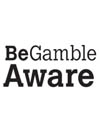Is Compulsive Gambling Really an Addiction?
Whether you purchase lottery tickets, gamble on sports, play poker or visit casinos, gambling can become addictive.
Why Do People Gamble?
Do you know a person with a gambling problem. You may be asking yourself that why they are putting themselves and their loved ones through such turmoil.
- Risk Taking – the excitement, buzz, of the high adrenaline release
The Competitive Element – beating other gamblers, bookie, or dealer
- Solve Financial Problems – the all or nothing mentality
A lot of problem gamblers think they are waiting for the ‘big win’, which never occurs but perpetually seems tantalisingly close. Having a large win fuels their desire for more gambling, leaving them feeling trapped into a behavior addiction with no way out.
Are You a Problem Gambler?
- Have you tried to win back the money you have lost (chasing losses)?
- Have you borrowed money or sold possessions to acquire money to gamble?
- Have you questioned whether you are a problem gambler?
- Has gambling caused you any health problems, feelings of stress or anxiety?
- Have friends or family criticised your gambling or told you that you had a gambling addiction (irrespective of whether or not you thought it was true)?
- Has your gambling resulted in any financial difficulties for you or your household?
- Have you felt bad about how you gamble or what happens when you gamble?
Diagnosis of Gambling Disorder/Gambling Addiction
Do you need to gamble with an increasing amount of money to achieve the desired excitement, Do you have constant thoughts about gambling such as:
Reliving past gambling experiences
Thinking about the next gambling venture
Thinking of ideas to get funds to gamble
Gambling addiction also called gambling disorder or compulsive gambling. Includes repeated problematic gambling habits that cause significant difficulties or distress.
How to Identify Problem Gambling?
People with a gambling disorder frequently hide their behavior. A person with a gambling disorder can experience periods where symptoms subside.
Gambling addiction often to runs in families, but environmental factors can also contribute. Symptoms of a gambling disorder can begin as early as adolescence or as late as older adulthood. Men are more likely to start at a younger age and women are more likely to begin later in life.
Our Latest Gambling Addiction Blogs
Admitting you have a problem is the first and most important step.
What Clients Say About us
“Stress, anxiety and a desire to escape all played into this moment when the obsession with gambling took over my life. The slots were my drug of choice so to speak and I loved everything about them.”
Trusted Partners
UK rehab and support groups for problem gamblers, their friends and family








